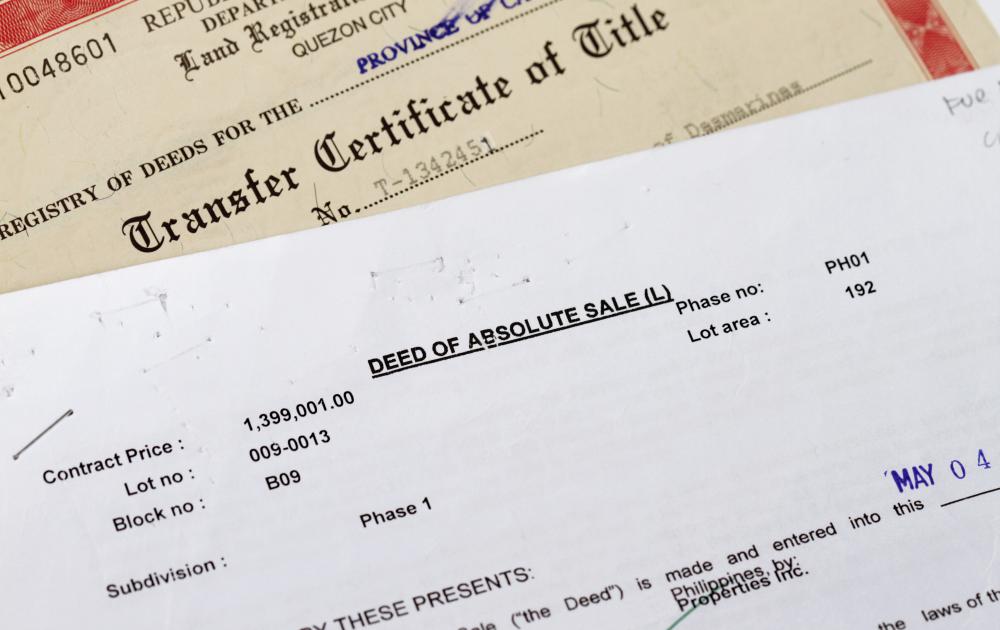At WiseGEEK, we're committed to delivering accurate, trustworthy information. Our expert-authored content is rigorously fact-checked and sourced from credible authorities. Discover how we uphold the highest standards in providing you with reliable knowledge.
What is Personal Property Law?
Personal property law is the area of property law that governs all property that does not consist of land or building structures that are attached to land. Personal property is movable property and goods, as distinguished from real property, which is fixed and immovable. Some examples of the personal properties that are subject to personal property laws include cars, jewelry, and small businesses. Personal property does not require a formal transfer or written contract in many cases. Real property must often be transferred by a written contract, and the associated deed is often recorded.
Personal property is sometimes classified as corporeal, which refers to tangible property that can be perceived by the senses or appear in material form. For example, a car or a computer would be classified as corporeal. The other classification is incorporeal, which refers to intangible property that has no material form and cannot be perceived by the senses. Examples of personal property that is incorporeal are copyrights, business interests, and bonds. Personal property law covers the rules and cases about possession, abandonment, and sale of corporeal and incorporeal personal property.

There are several other laws that overlap with personal property law. For example, landlord and tenant laws state when and how landlords can dispose of personal property belonging to an evicted tenant. Inheritance laws also specify how a decedent’s personal properties are to be distributed to heirs, which may be different from the rules for the distribution of real property. Many regions collect taxes on certain types of personal property, which are covered by taxation laws. For example, the amount of tax that a county in the United States can levy on cars owned by county residents is often found in the tax laws.
The issues of ownership and possession are important aspects of personal property law. Individuals who take possession of certain types of personal property may also obtain title to and ownership of it. For example, personal property law in many jurisdictions states that the finder of lost property owns it if he takes possession of it. The exception to that rule is if the original owner makes a claim to it. The two types of possession include active and constructive. An individual has active possession when she takes physical possession of the personal property. An individual has constructive possession when he has the power to control it and intends to do so.
AS FEATURED ON:
AS FEATURED ON:











Discuss this Article
Post your comments